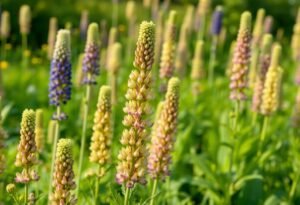Selecting the Right Watermelon Variety
Choosing the right variety of watermelon is essential for a successful harvest. Watermelon cultivation begins with deciding which types will thrive in your garden’s conditions. Pay attention to the maturity period and environmental factors that might affect your plants. Popular varieties include “Sugar Baby” and “Crimson Sweet,” both renowned for their delicious flavors, making them worth a try!
Choosing the Perfect Spot for Watermelon
Watermelons thrive in full sun and warmth, so selecting the right spot in your garden is critical. Ideal locations should receive sunlight for most of the day. Remember, watermelon cultivation in shaded areas won’t produce the desired results. Well-draining soil is another crucial factor for success.
Preparing the Soil for Growing Watermelons
Before planting, it’s vital to prepare the soil adequately. Watermelon cultivation is significantly easier when your soil is rich in nutrients. Enhance the soil with compost and organic fertilizers. Aim for a soil pH between 6 and 6.8. Ensure that the soil is well-aerated before planting.
Timing and Method of Planting Watermelon
In the U.S., the best time to plant watermelons is in late spring when soil temperatures exceed 60 degrees Fahrenheit. You can either sow seeds directly into the ground or start them in pots and then transplant them into the garden. Watermelon cultivation from seeds is common. Maintain appropriate spacing between plants, typically 1-2 meters apart.
Watering and Care for Watermelons
Proper watering is vital for healthy watermelon growth. Regular hydration is key during hot summer months. Watermelon cultivation is best supported through a drip irrigation system, providing water directly to the roots. Additionally, routinely removing weeds and monitoring plants for diseases and pests is crucial for healthy growth.
Harvesting Watermelons: The Right Time
Watermelon harvesting typically occurs in late summer. Watermelon cultivation culminates in the excitement of picking ripe, juicy fruits. To determine if a watermelon is ready for harvest, pay attention to its color, thump sound, and markings on the rind. After harvesting, store the fruits in a cool, dry place to ensure they stay fresh longer.
Conclusion
Cultivating watermelons is a incredibly rewarding experience. With proper techniques and care, anyone can enjoy the delightful taste of freshly grown watermelons. Don’t wait any longer—start your watermelon cultivation journey today, and make your summer gatherings filled with flavor and joy from home-grown delights!
Disclaimer
This article is for informational purposes only and does not substitute for professional gardening advice. Please consult an expert before making decisions regarding your garden.

















